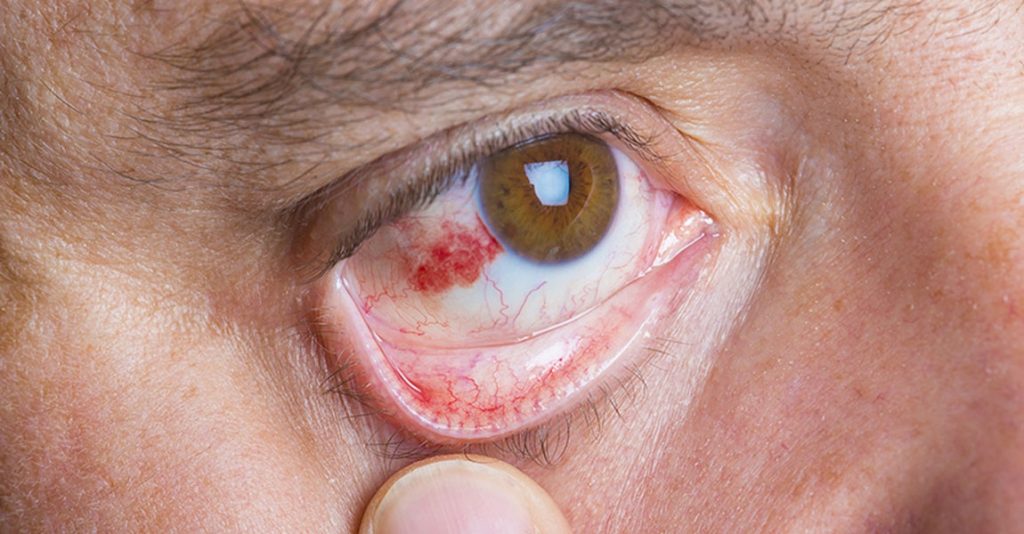
Conjunctivitis (Red eye)
Home > Health Info > Health Articles

Conjunctivitis outbreaks mostly occur during the rainy season.
What is Conjunctivitis? And how can it occur?
Dr. Bundit Leethanaporn Ophthalmologist, Bangkok Hospital Pattaya, explains that conjunctivitis is inflammation of the conjunctiva. The most common causes of conjunctivitis are viruses and bacterial that spread around homes and schools.
Viral Conjunctivitis
Viral Conjunctivitis is easily and rapidly spread through direct contact, sharing items, coughing and breathing. Viral Conjunctivitis will occur within 1-2 days after infection. Once conjunctivae becomes red, the virus can be transmitted to others for 2 weeks. Infected person will have sudden redness, irritation, sensitivity to light, watering eye, swelling and clear discharge. Conjunctivitis will occur in one eye and infect to the other eye within 2-3 days and will last 10-14 days.
In some cases, after the conjunctivitis gets better complications can occur such as Keratitis that makes the person have blurred vision or irritation. The symptoms will occur during 7-10 days right after the conjunctivitis becomes obvious. Keratitis can last for a month if it does not get proper treatment.
As Virus Conjunctivitis is infection by virus, antiviral medication may not be able to treat the condition completely. The different ways of treatment will be considered according to the patient’s conditions such as
- If conjunctiva is inflamed, an Ophthalmologist will advise using eyes drop to treat the inflammation.
- Pain reduction medicine to be used such as Paracetamol to reduce the pain and irritation
- Use cotton bud/pad with clean water (soak a cotton bud in clean water) clean around the eyelids to remove all discharge. Wearing sunglasses to reduce the irritation from the light. Avoid using eye pad to cover the infected eye because it will make the inflammation worse. Avoid wearing contact lens until the eyes are completely settled. Rest your eyes as much as possible. Avoiding conjunctivitis infection is very important because the virus transmits easily but there is no specific treatment for this virus up until now. The infection is prevalent in the communities, workplaces etc. The ways to protect and stop the spread from this virus are:
- Isolate the infected patient; infected children and adults need to stay home to avoid spreading the virus to their colleagues.
- Do not touch or rub the inflamed eye because the virus can be transmitted from objects to persons, and do not share facial and hand towels or clothes with the infected person, and cover your mouth when coughing.
- Wash your hands with soap and always keep your hand clean.
Bacterial Conjunctivitis has symptoms similar to Virus Conjunctivitis; redness, irritation, pain and produces thick or yellow discharge that makes the eyelids stick together. Bacterial Conjunctivitis has no sudden symptoms like Virus Conjunctivitis because Bacterial Conjunctivitis spreads from person to person and not a virus outbreak. The bacteria can be treated by antibiotic eye drops when it occurs but if the symptom gets worse, an Ophthalmologist will advise the application of eye drops more often generally every 1-2 hours, and every 4-6 hours when the symptom subside. With an eye ointment, usually apply before bedtime in order to leave the medicine in place all night. An eye ointment will cause blurred vision if applied in the day time. The condition will be better within 2-3 days after being treated and will be completely settled within 1 week. Other ways of treatment and protection are much the same with Virus Conjunctivitis.
Apart from the above mentioned symptoms, it can be found in other eye diseases such as Glaucoma, Corneal Infection or Uveitis. Once you notice the redness, see your Ophthalmologist for the proper treatment and do not buy over the counter medications.
Share :



